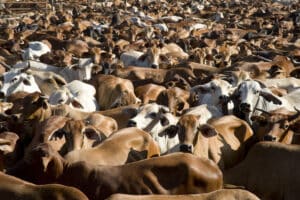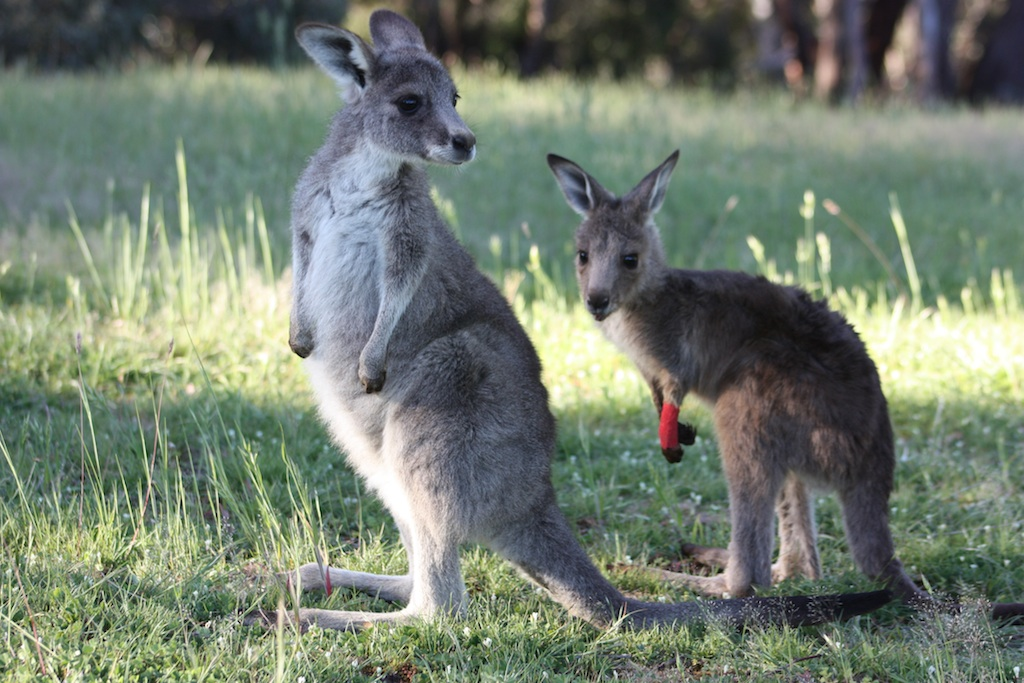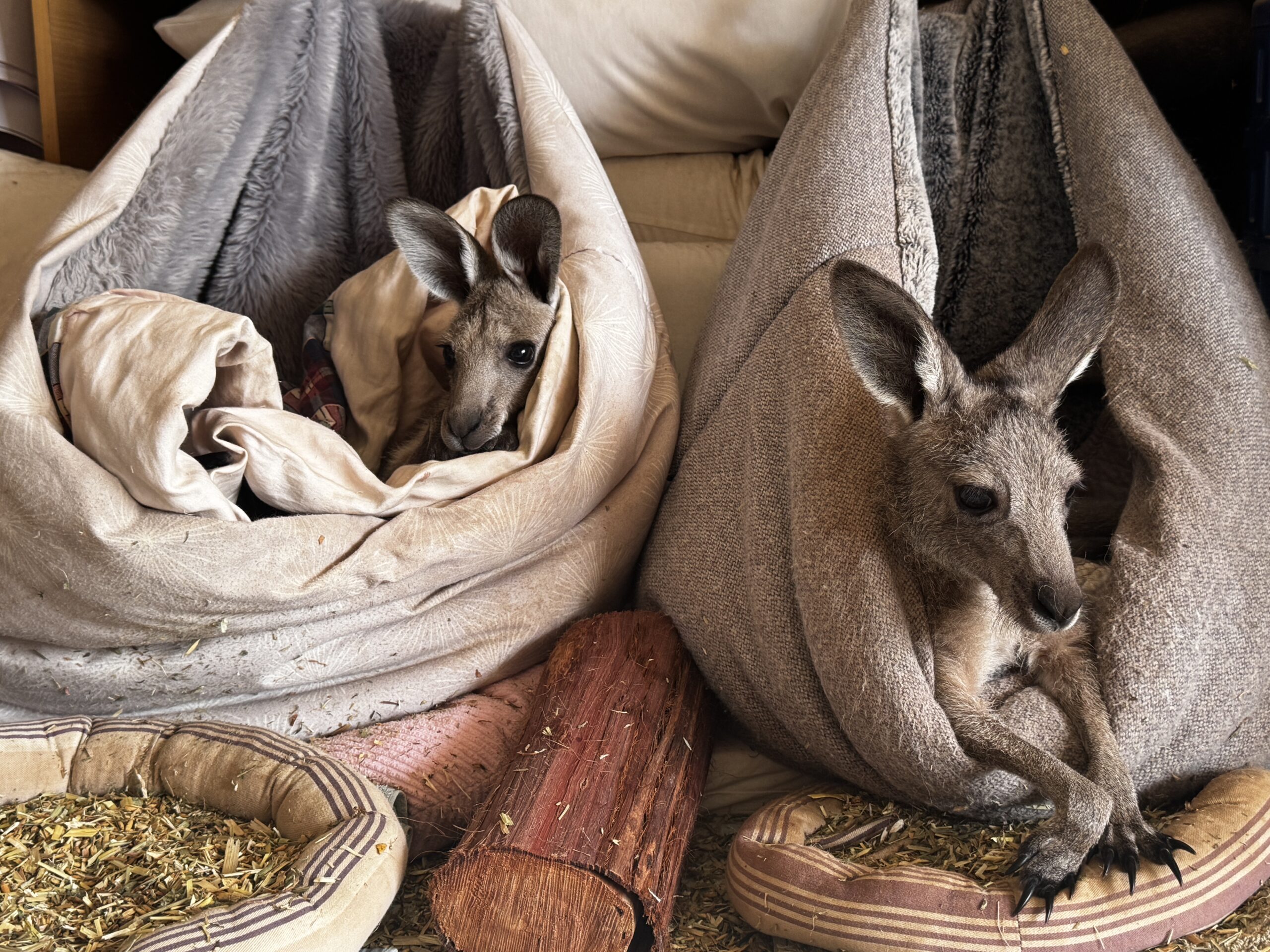Data on NSW licencing reveal the extent of Government-sanctioned destruction of native animals in the state | Conservation groups and wildlife carers to provide evidence of the extent of cruelty at inquiry into licensed killing SYDNEY (5 February, 2026)—Humane World for Animals Australia (previously Humane Society International Australia) will...
Did you know that more than 88 billion land animals are raised, reared and killed for food globally every year? That’s around 2,790 every second. Here in Australia, its estimated that over 500 million land animals are killed for food annually. But it’s not only farm animal lives that are impacted in animal farming. Sadly the impacts are far more widespread, and here’s why.
The reality is that the expansion of livestock farming goes hand-in-hand with habitat destruction, land degradation, and loss of biodiversity. More than half of the land in Australia is grazed by animals raised for people to eat. (1) On top of that, land is also cleared to be used for the production of the food to feed all the farm animals. In fact, more land is cleared in Australia than almost every country on the planet, especially for cattle farming, with our deforestation rates ranking us in 5th position globally. (2) Queensland is the worst culprit with over 90,000 hectares of likely or known koala habitat destroyed there within just one year, according to the Wilderness Society. Of that, around 80 per cent was bulldozed for beef production. (3) Livestock production is notably one of the biggest human contributors to species decline. (4)
This destruction of natural habitats threatens countless species, including endangered ones, as well as disrupting ecosystems. And when forests are cut down, the carbon stored in the trees is released into the atmosphere adding to the impacts of climate change. Animal agriculture is a substantial contributor to greenhouse gas emissions. In fact, animal farming is responsible for at least 16.5% of human-induced greenhouse gas (GHG) emissions globally. (5) That’s on par with the GHG emissions from all planes, trains, cars, and ships around the world. Methane, a potent greenhouse gas released during livestock digestion, and nitrous oxide emissions from animal waste, both contribute substantially to global warming, on top of the carbon released when forests make way for livestock.
So it’s simple to see that by adopting a plant-based diet we can drastically reduce our carbon footprint. Plant-based foods generally require fewer resources to produce, resulting in lower emissions. A study published in the journal Science (6) found that switching to a plant-based diet could reduce an individual’s carbon footprint by up to 73%. The same study revealed that staggeringly, the switch at a global scale would require around 3.1 billion hectares less farmland, taking the pressure off the world’s tropical forests and releasing land back to nature.
Then there are also the animal welfare aspects to consider. Unsurprisingly, intensive animal farming practices in the meat, egg and dairy industries give rise to significant welfare concerns. Animals raised for food are often confined in overcrowded spaces, subjected to painful procedures, and deprived of natural behaviours.
No Meat May is a global campaign that encourages the adoption of a plant-based diet throughout the month of May. The importance of diet choice in creating a positive impact on our planet is gaining momentum. No Meat May encourages people to explore alternative sources of protein, such as legumes, nuts, and seeds. An opportunity to embrace a more diverse and nutritious diet! Many of the chronic diseases plaguing the world can be prevented, treated and, in some cases, even reversed with a plant-based diet. (7) After all, the World Health Organisation (WHO) recommends that people eat more fruits, vegetables, nuts and whole grains, and transition away from saturated animal fats to unsaturated vegetable oil fats.
So, why not join the movement and have fun exploring plant-based options. You might enjoy it so much No Meat May becomes the starting point for a journey that extends into June, July and beyond, transporting you towards a more sustainable and compassionate future.

1 https://climateworkscentre.org/land-use-futures/australias-land-use/
2 https://thefifthestate.com.au/business/public-community/deforestation-how-does-australia-fare-in-global-comparisons/
3 https://www.theguardian.com/australia-news/2022/mar/14/land-clearing-destroyed-90000-hectares-of-queensland-koala-habitat-in-single-year-analysis-finds#:~:text=It%20calculates%20that%2092%2C718%20hectares,government%20area%2C%20the%20organisation%20said.&text=The%20vast%20majority%20of%20the,%25%20%E2%80%93%20was%20for%20beef%20production.
4 https://www.biologicaldiversity.org/programs/population_and_sustainability/food/
https://www.science.org/content/article/meat-eaters-may-speed-worldwide-species-extinction-study-warns
5 http://www.fao.org/news/story/en/item/197623/icode/
6 https://www.ox.ac.uk/news/2018-06-01-new-estimates-environmental-cost-food
7 https://www.ncbi.nlm.nih.gov/pmc/articles/PMC5466941/
https://rhochistj.org/RhoChiPost/combating-chronic-diseases-with-a-plant-based-diet/
https://www.researchgate.net/publication/236909487_Nutritional_Update_for_Physicians_Plant-Based_Diets
https://pubmed.ncbi.nlm.nih.gov/32594898/
https://pubmed.ncbi.nlm.nih.gov/25198208/
https://pubmed.ncbi.nlm.nih.gov/9863851/
https://pubmed.ncbi.nlm.nih.gov/16094059/


